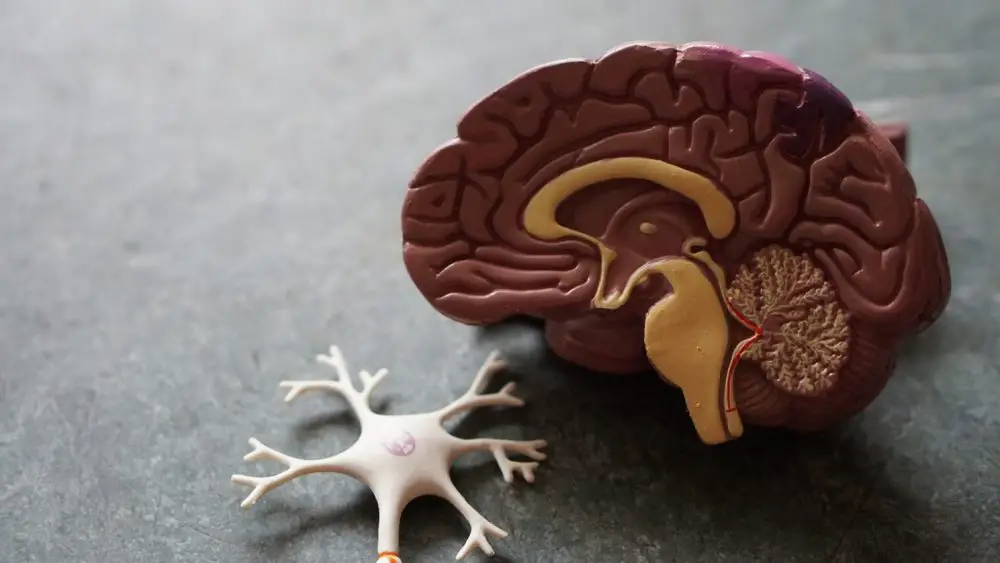![How To Deal With Sensory Overload [9 Tips For Overstimulation]](https://happyrubin.com/wp-content/uploads/2019/12/ik-ben-overprikkeld-150x150.jpg)
NLP Scientifically Proven: 28+ Studies That Prove Its Effect

Has NLP been scientifically proven? NLP can be used as a means of therapy. Does this also work when you look at it scientifically? Read on for scientific resources on NLP …
Contents of this page:
General research on NLP and databases with research on NLP
Below you will find a selection of university studies on NLP, in which NLP is sometimes proven and sometimes not.
- Lisa Rijks, Lucas Derks, Bruce Grimley and Jaap Hollander have contributed a lot to scientific research on NLP. Their findings were published in the British Psychologyical Society in the first quarter of 2019 . You can also read their piece here .
- Dr. Lucas Derks published another important paper in 2016 : What cognitive psychotherapies – like CBT, NLP and Ericksonian hypnotherapy – reveal about the workings of the mind. A theoretical analysis over 35 years of clinical experimentation.
- EANLPt has linked to a number of academic papers at the top of this page , with an explanation below.
- NLP-Wiki focuses on science and NLP. On their homepage you will immediately find an impressive overview of the entire NLP methodology with an impressive list of research papers.
- On www.nlp.de/research are more than 440 academic papers – abstracts – about studies about the effects of NLP.
- The IANLP website has a paper entitled: Evidence-based Neuro Linguistic Psychotherapy: a Meta-Analysis by Zaharia C, et al. Psychiatr Danub. 2015.
- “Mirror Neurons”: The Neuropsychology of NLP Modelling. Validation of transfer of excellence techniques by modern neuro sciences.
- View the paper: Assessing the effectiveness of NLP: Study Hollander / Malinowski (2016); Norris (1996) This older study too .
- The British Psychologyical Society , in 2019 published a paper in 2019 about how the evidence of NLP can be better validated. See this paper.
- That same Dr. Bruce Grimley has tried to explain NLP as accurately as possible in this paper .
Investigations of NLP in therapy / psychotherapy
- Research on the use of NLP in PTSD (2014). See also this study (2015).
- NLP perspective in psychotherapy for sadness. Theoretical background, method and case studies.
- A study on how NLP can be used as a source of positive psychological interventions to improve self-confidence and subjective well-being.
- A thesis that compares the effects of counselors who have or have not been trained in NLP.
- A study of the treatment of phobias with NLP.
- A study of the treatment of vertigo with NLP.
- A study showing that NLP is more effective than smoking cessation drugs.
- A thesis showing that matching someone’s primary representation system increases trust in a therapeutic relationship.
- Research into the long-term effect of guidance with NLP: an average of 20 sessions of 60 minutes. The treated group with DSM diagnoses was compared to a control group. In the therapy group, a significant decrease in clinical symptoms and a significant increase in quality of life were found. Five months later, the changes held.
- Research on NLP and pollen allergy.
Researching NLP in coaching
- An investigation into the effect of the dissociated state of mind – the third perception position – on learning to control emotions.
- A study of the effect of mirroring body language.
- A study of the effect of marching predicates in a coaching conversation: how effective is it for increasing the satisfaction of the clients?
- An investigation of representation systems and the effect on perceived empathy, when taking into account a person’s preferred system.
Researching NLP in education
Research of eye movements
- Research on eye movements , Dr. Richard Bolstad, 2015.
- The Eyes Don’t have it : Lie Detection and Neuro-Linguistic Programming, Wiseman and Watt, 2012. However, the hypothesis studied here is not the NLP hypothesis. See the Bolstad study above.
- Here you will find again what the founders of NLP – Bandler and Grinder – have claimed. They adopt a completely non-scientific attitude and argue that the eye movements cannot be generalized to multiple people: you can observe temporary patterns per person – and that is different for everyone.
Why has NLP’s Wikipedia page not been corrected?

The explanation is simple: there is a bit of ‘harassment’. The NLP Wikipedia page appears to have been written and monitored by an editor whose mission is to discredit NLP.
This is clearly visible in the writing style of the article. He has labeled NLP as “pseudoscience” while conveniently ignoring over 200 scientific studies that suggest NLP has something valuable to offer and warrant further research.
There are, of course, also well-meaning and neutral volunteers who contribute for Wikipedia. Why would six in ten articles contain factual errors on Wikipedia.
Here you can read the full refutation with substantiation.
NLP doesn’t even want to be scientific

NLP is about the ‘subjective experience’. That is why NLP is not even really interested in meta-research ‘truth’, but only looks at the usability per individual.
NLP is by definition non-scientific. It wants to break through the frame of reference of knowing and move out of the box towards not-knowing. NLP teaches you not to accept anything on purpose, so that you can make a ‘diagnosis’ for each person and do or say something different for each person. NLP is therefore not deductive (scientific) but inductive. See this article on induction.
Suppose that 86% of the cases turn out to be effective. You can then be in the top 14%, so go for it!
Suppose 100% of the cases fail. You can be the first to succeed!
Everything is unprecedented until it first happens.
Moreover, NLP appeals to the self-healing capacity – which is also by definition non-scientific, but actually inductive: the self-healing capacity assumes that the prognosis does not have to be correct, and that you can be the exception who heals or becomes older than the average.
Marie has cancer. She looks at the scientific bell shaped curve to see how long she has left to live. She reads the average and now she knows she has 5 years to live. That’s bullshit. Is Suzan a statistic? No. She is a person.
More scientifically proven concepts that occur frequently in NLP

The concepts below have long been accepted as scientifically proven:
- Placebo-effect
- Mirror neurons
- Thinking about an event activates your body as if it actually happened.
The above phenomena are an important part of NLP. Yet NLP in its entirety is not yet as scientifically accepted as mindfulness (MBSR), for example. In that regard, mindfulness and meditation have a much stronger – or maybe I should say better-known – evidence based on research.
On your luck!

![5 Best Self Care Tips For College Students [#1 Advice]](https://happyrubin.com/wp-content/uploads/2021/09/the-best-self-care-tips-for-college-students-440x264.jpg)
![How To Stick To New Year’s Resolutions: 9 Tips [Smart & Sure Ways]](https://happyrubin.com/wp-content/uploads/2019/12/tips-voor-goede-voornemens-440x264.jpg)
![How To Stop Being So Hard On Yourself [9 Great Tips]](https://happyrubin.com/wp-content/uploads/2019/12/we-moeten-zoveel-van-onszelf-en-anderen-150x150.jpg)

![19 Best Ice Breaker & Get-To-Know-Eachother Games [Fun & Simple]](https://happyrubin.com/wp-content/uploads/2018/02/leukste-ijsbrekers.jpeg)
![Becoming More Social: 41 Tips [Improving Social Skills] [List]](https://happyrubin.com/wp-content/uploads/2018/06/sociale-vaardigheden1.jpeg)
![How to start a conversation with anyone: 15 tips [Making contact]](https://happyrubin.com/wp-content/uploads/2017/08/gesprekstechnieken1.jpeg)
![372 Friend Tag Q&A Questions [Best Friend Quiz]](https://happyrubin.com/wp-content/uploads/2019/05/best-friend-tag-vragen-voorbeelden.jpg)



![Clingy & controlling behavior of partner/date [Extreme examples]](https://happyrubin.com/wp-content/uploads/2020/06/claimerig-gedrag-van-partner-eigenschappen-en-voorbeelden-150x150.jpg)

![How to recognize if a man is in love [Signals & his body language]](https://happyrubin.com/wp-content/uploads/2020/05/verliefd-gedrag-van-mannen-herkennen-150x150.jpg)


![Free will and religion / theology [Verses & Quotes on free will]](https://happyrubin.com/wp-content/uploads/2020/10/religion-on-free-will-quotes-1050x640-1-150x150.jpg)

![Dealing With Setbacks & Hardship [Lessons & Examples]](https://happyrubin.com/wp-content/uploads/2018/11/omgaan-met-tegenslag-tips-hoe-dan.jpeg)
![NLP Agreement Frame: Use these exact sentences [Examples]](https://happyrubin.com/wp-content/uploads/2020/10/agreement-frame-nlp-1125x640-1-440x264.jpeg)
![122 Best Comebacks In Any Situation [Best Examples]](https://happyrubin.com/wp-content/uploads/2020/06/beste-comebacks-technieken-tips-440x264.jpg)
![Using Hypnosis to Stop Smoking [HowTo]](https://happyrubin.com/wp-content/uploads/2020/05/stoppen-met-roken-door-hypnose-150x150.jpg)
![Presuppositions language pattern: meaning & examples [NLP]](https://happyrubin.com/wp-content/uploads/2020/04/wat-zijn-vooronderstellingen-150x150.jpg)
![Peripheral Vision: Meaning & Exercise [Essential Skill]](https://happyrubin.com/wp-content/uploads/2020/04/perifeer-zicht-trainen-tips-150x150.jpg)

![How To Start A Coaching Business [21 Smart Tips]](https://happyrubin.com/wp-content/uploads/2018/11/coachingpraktijk-starten-tips.jpeg)
![How to make dreams come true? [33 tips to realize dreams 100%]](https://happyrubin.com/wp-content/uploads/2018/05/dromen-mijlpalen.jpeg)
![How To Become Rich? 27 Millionaire Tips [Guaranteed To Work]](https://happyrubin.com/wp-content/uploads/2018/01/hoe-kan-ik-rijk-worden.jpeg)
![77 Best Online Marketing Tools [Recommendations] [Also Free]](https://happyrubin.com/wp-content/uploads/2018/08/beste-onlne-marketing-tools-tips.jpeg)
![Complete List Of Virtues & Qualities [Including Explanation]](https://happyrubin.com/wp-content/uploads/2018/12/kernkwaliteiten-uitleg.jpeg)
![Being Attentive: How Do You Do That? [Meaning & 9 Tips]](https://happyrubin.com/wp-content/uploads/2019/05/attent-zijn.jpg)
![Being Conscientious: Meaning Of This Virtue [Explained]](https://happyrubin.com/wp-content/uploads/2018/07/Consciëntieus-persoon.jpg)


![Best Books About Burn-Out [Top 10] [Update 2025]](https://happyrubin.com/wp-content/uploads/2020/06/beste-boeken-over-burnout-lijst-440x264.jpg)
![Best Self-love Books [Top 10] [Update 2025]](https://happyrubin.com/wp-content/uploads/2020/04/beste-boeken-over-zelfliefde-aanraders-440x264.jpg)
![Life changing books: 10 books that change your life [2025 Update]](https://happyrubin.com/wp-content/uploads/2020/03/levensveranderende-boeken-tips-150x150.jpg)
![Top 10 Best Books: Recommendations Per Genre [2025 Update]](https://happyrubin.com/wp-content/uploads/2019/12/best-books-per-genre-150x150.png)
![Best Books On procrastination: Must Reads [List] [2025 Update]](https://happyrubin.com/wp-content/uploads/2019/11/beste-boeken-over-uitstelgedrag-tips-150x150.jpg)
![Joe Dispenza: Events To Attend [2025 & 2026] [All Info]](https://happyrubin.com/wp-content/uploads/2020/02/joe-dispenxa-events-440x264.png)
![Best Online Study Options [Online Education Top List]](https://happyrubin.com/wp-content/uploads/2019/03/best-home-study-options-440x264.png)
![Teachable Review & Experiences 2025 [Bad Online Training Tool?]](https://happyrubin.com/wp-content/uploads/2020/02/Teachable-review-ervaringen-150x150.png)
![Audible Review, Experiences & Special Discount [Scam?]](https://happyrubin.com/wp-content/uploads/2020/01/audible-review-ervaringen-150x150.png)
![Guest Posts Wanted [Free & Always Directly Accepted]](https://happyrubin.com/wp-content/uploads/2019/05/gastbloggen-regels.jpg)

This is exquisite Rubin! Well done 🙂
A brilliant site. Thank you so much for your effort in presenting it,
Best Wishes,